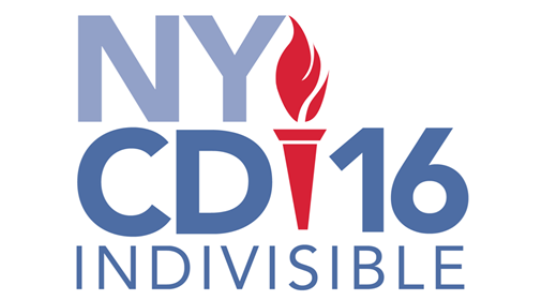Did anyone noticed that in The New York Times article, “The ‘Resistance,’ Raising Big Money, Upends Liberal Politics,” Kenneth P. Vogel equated the Democratic Party with “the left”? He’s not the only one doing that.
Since when is the Democratic Party leftist? The Left is called The Left because it’s left of center. The Democratic Party is centrist. If anything, it needs to move farther left.
Vogel was born in 1975, so he missed out on the actual Left, but he could at least have studied history. The distinction between left and centrist was very clear in the 1960s and 1970s: The Left was radical, the Democrats were moderate, and the liberals were Democrats who were just slightly left of center. A lot of Lefties had contempt for both liberals and Democrats for being too middle-of-the-road.
Using “left,” “liberal,” and “Democrat” interchangeably are playing straight into the right wing’s hands. The right has already turned “liberal” into a dirty word in the red states (even some blue state people are afraid of it), and they can easily convince people that “left” means chaos. They excel at scare tactics.
The Washington Post is also tripping up with its language. They keep referring to the Trump tax bill as “reform,” and talking about “tax cuts.” They’re drinking the Kool-Aid if they continue to use the language that comes from the White House. The WaPo should be calling a spade a spade, and not taking its cue from the orange dotard fan club.
The GOP specializes in language tricks. Whaa? “Citizens United” is about allowing corporations status as individuals for the purpose of campaign funding?? You mean it’s not an all-for-one, one-for-all rah-rah America group? Oops.
The WaPo needs to keep spelling out that the only tax cuts involved are for the rich and for corporations, because the GOP language will fool a lot of people into favoring it—who wouldn’t want a tax cut? This bill is in effect raising taxes for most Americans, but the Republicans think if they keep reciting the “tax cuts” mantra, people won’t notice the attack on Medicaid and Medicare. Or the $700 billion military budget.
And why are Medicaid and Medicare called “entitlement” programs? The right wing has cleverly distorted that word into a negative — the way people talk about college millennials feeling entitled to everything — as if people who need Medicare or Medicaid (and Social Security) are freeloaders, a burden on the government, instead of the people who actually paid for those supports throughout their working lives.
Let’s reclaim the true meaning: people who paid into Medicare (and Social Security) are entitled to (i.e., owed) these benefits. Those who need Medicaid are entitled to the help they need, because this country can afford it.
Let the Times and the WaPo hear from you. Write a letter to the editor. Or tweet. For that matter, let everyone hear from you, every time you encounter these language faux pas. (And yes, that’s the plural of faux pas.)
To send a letter to the editor of The New York Times: letters@nytimes.com
Thomas Feyer is the letters editor.
Rules for submission: Letters should preferably be 150 to 175 words, should refer to an article that has appeared within the last seven days, and must include the writer’s address and phone numbers. No attachments. Letters may be edited and shortened for space.
To send a letter to the editor of the Washington Post: letters@washpost.com, or use the form on their website: https://www.washingtonpost.com/opinions/letter-to-the-editor/?utm_term=.08f674ce4f0a
Letters editor is Mike Larabee.
Rules for submission:
“We prefer letters that are fewer than 200 words and take as their starting point an article or other item appearing in The Post. They may not have been submitted to, posted to or published by any other media. They must include the writer’s full name — anonymous letters and letters written under pseudonyms will not be considered. For verification purposes, they must also include the writer’s home address, e-mail address and telephone numbers. Writers should disclose any personal or financial interest in the subject matter of their letters. If sending e-mail, please put the text of the letter in the body and do not send attachments — they will not be read.”
P.S. from Stella:
You can’t use any 4-letter words, either. Darn!
